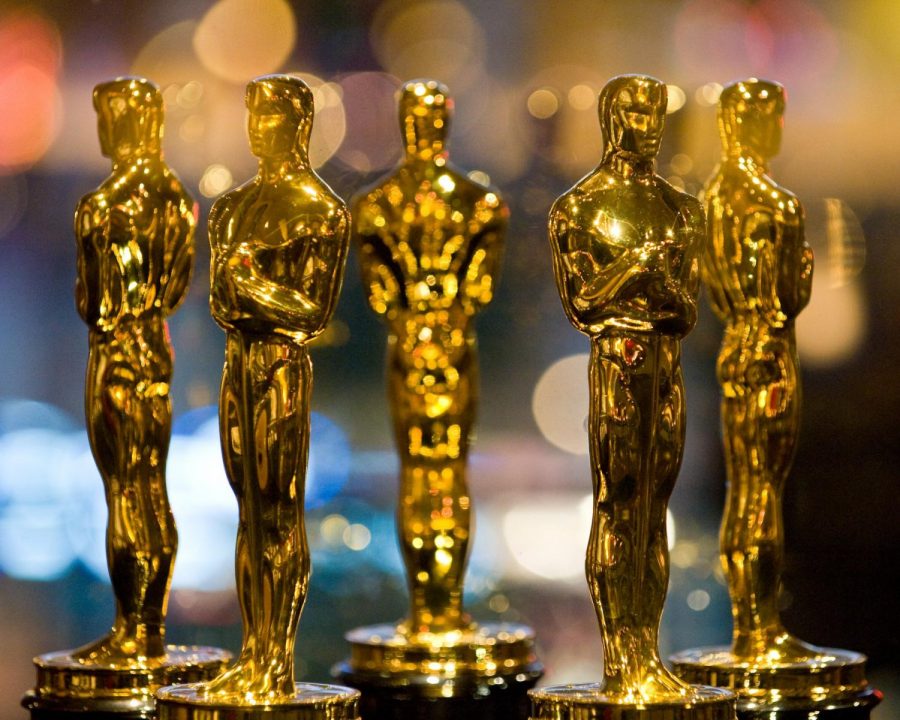I was really angry when I read this year’s list of Oscar nominations. Was I surprised? No.
Once again the nominees lacked diversity. Zero women were nominated for Best Director and only one person of color, Cynthia Erivo, was nominated for an acting award. Notable snubs included Greta Gerwig’s directing for “Little Women,” Jennifer Lopez for “Hustlers” and Lupita Nyong’o for “Us.” This year’s homogeneity is nothing new; the Academy has sparked controversy in the past few years for failing to recognize women and people of color. People are angry, and justifiably so.
But here’s the thing: the Oscars don’t really matter. In fact, award ceremonies in general don’t matter. This shouldn’t be how we celebrate film or music. Pitting artists against each other and deciding that one film, song or album is somehow the “best” is not only subjective, it completely devalues the arts.
Awards ceremonies exist to create a spectacle. Audiences love sport and competition, so these ceremonies offer a way to make the arts more digestible to the general public. They have little to do with celebrating creators, but rather focus on winners and losers. Who will win best film? Who was nominated the most? Who was snubbed? Who is the best dressed? In the wake of the chaos, we forget all about the art itself.
Besides, some of the greatest films of all time have not won Oscars. “Pulp Fiction,” “The Wizard of Oz” and even “Citizen Kane,” often regarded as the greatest film ever made, lost the Best Picture award. This loss has not lessened the quality of these films. It seems obvious, but what classifies something as great is inherently subjective. Who’s to say one film is better than another? These superficial titles seem especially silly considering the group deciding the winners. The Academy of Motion Picture Arts and Sciences, better known simply as “The Academy” is comprised of approximately 9,000 film professionals, their membership earned via invitation. Despite efforts to increase diversity, the Academy is 68 percent male and 84 percent white. Essentially a group of rich, white Hollywood insiders giving awards to rich, white Hollywood insiders.
We should aim to recognize excellence in the arts, but there are ways to do this that don’t pit artists against each other. A great example of this are the Kennedy Center Honors. Each year, the Kennedy Center inducts a group of artists who have excelled in their field to the list of honorees. The Honors gala is televised, and current artists perform in honor of the inductees. According to their website, “The annual Honors gala is an evening without categories, without disappointments, and without competition.” This is the perfect way to celebrate the world’s greatest filmmakers, actors, musicians and dancers. In an era where the arts are often underfunded, undervalued and underappreciated, there is no need to focus on competition. We should be aiming to recognize all of the greats, not focusing on who is the greatest.
How do we want to define great art? Are great artists the creators with the most trophies? I don’t think so. That being said, we need to recognize artists from all walks of life. Great film is not exclusively male, nor is it exclusively white. We should be angry that the Academy continues to undervalue diversity, but we should also recognize that these awards speak little to an actor’s talent, or a film’s impact. The arts don’t exist to be the best. They exist to transport us to new realms, to question our beliefs, to educate, to challenge and inspire. When we focus on the awards, we forget about this. Years from now, we will not remember who won the best picture in 2020. We will remember the scenes that made us laugh hysterically, the suspense that had us on the edge of our seats and the moments that made us weep. We will remember the movies, not the awards.
Emma Garber is an Assistant Op/Ed Editor and can be reached at [email protected] and followed on Twitter @EmmaGarber1.




















